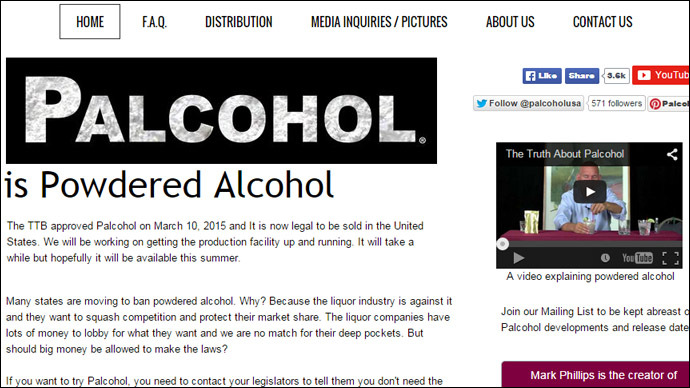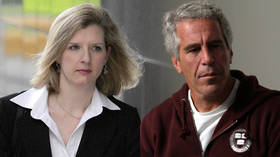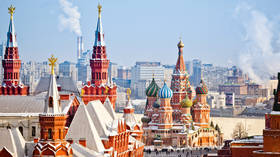States already banning powdered alcohol just days after approval

Though powdered alcohol has been approved for sale by the federal tax and trade authority, many state and some federal legislators are alarmed – and are seeking to ban the product before it ever hits the shelves.
Earlier this week, the US Alcohol and Tobacco Tax and Trade Bureau (TTB) approved the sale of 'Palcohol' in vodka, rum, cosmopolitan, and “powderita” flavors, with lemon drop still pending. In response, the Utah state legislature adopted a bill banning the product, while New York Senator Charles “Chuck” Schumer introduced a law that would ban it at the federal level.
“Underage alcohol abuse is a growing epidemic with tragic consequences and powdered alcohol could exacerbate this,” Schumer (D-N.Y.) said in a statement introducing the 'Sober Truth on Preventing Underage Drinking Reauthorization Act' (STOP) legislation.
Alaska, Colorado, Louisiana, Michigan, Minnesota, New Jersey, New York, Ohio, South Carolina and Vermont have already banned powdered alcohol or have pending legislation that would do so.
“Since the product isn’t even on the market yet, there is not one shred of evidence that it will be used or abused any differently than liquid alcohol,”Palcohol maker Lipsmark LLC said on its website. “Every concern we’ve heard is unfounded speculation and that is no basis to outlaw a product.”
Creator Mark Phillips says he designed the product for the convenience of travelers, and that industrial-grade Palcohol could have medical, manufacturing and energy applications. He dismissed arguments that powdered alcohol could be snorted, snuck into venues or used to “spike” someone’s drink as being impractical, due to the properties of the powder. And since the powder would be subject to the same rules as liquid alcohol, it would remain illegal for sale to minors.
The media furor over Palcohol’s approval prompted the US Food and Drug Administration (FDA) to issue a clarification Friday, saying that the authority to regulate alcohol lies with the Tax and Trade Bureau.
“We did not provide an approval, nor did we conduct any testing,” the FDA said in the statement.
In defense of powdered alcohol—sure, someone could spike your food. But why would they use palcohol to do it? http://t.co/IJ3JGbTWaS
— Pacific Standard (@PacificStand) March 13, 2015
However, the agency did evaluate the non-alcohol ingredients in the powder, at the request of TTB, and concluded that “the use of ingredients in the proposed products was in compliance with FDA’s regulations.” Ingredients used in the powder are “typical of ingredients found in many processed foods,” the statement said, so “at this time the FDA does not have a legal basis to block market entry of this product.”
READ MORE:Caffeine kills: Amazon sued in Ohio teen’s overdose
The FDA also lacks authority to ban powdered caffeine, linked to at least two overdose deaths last year, since it is technically a food supplement. However, the agency has urged the public to refrain from using caffeine powder, since it is virtually impossible to determine the correct dosage by using common household measuring tools.












